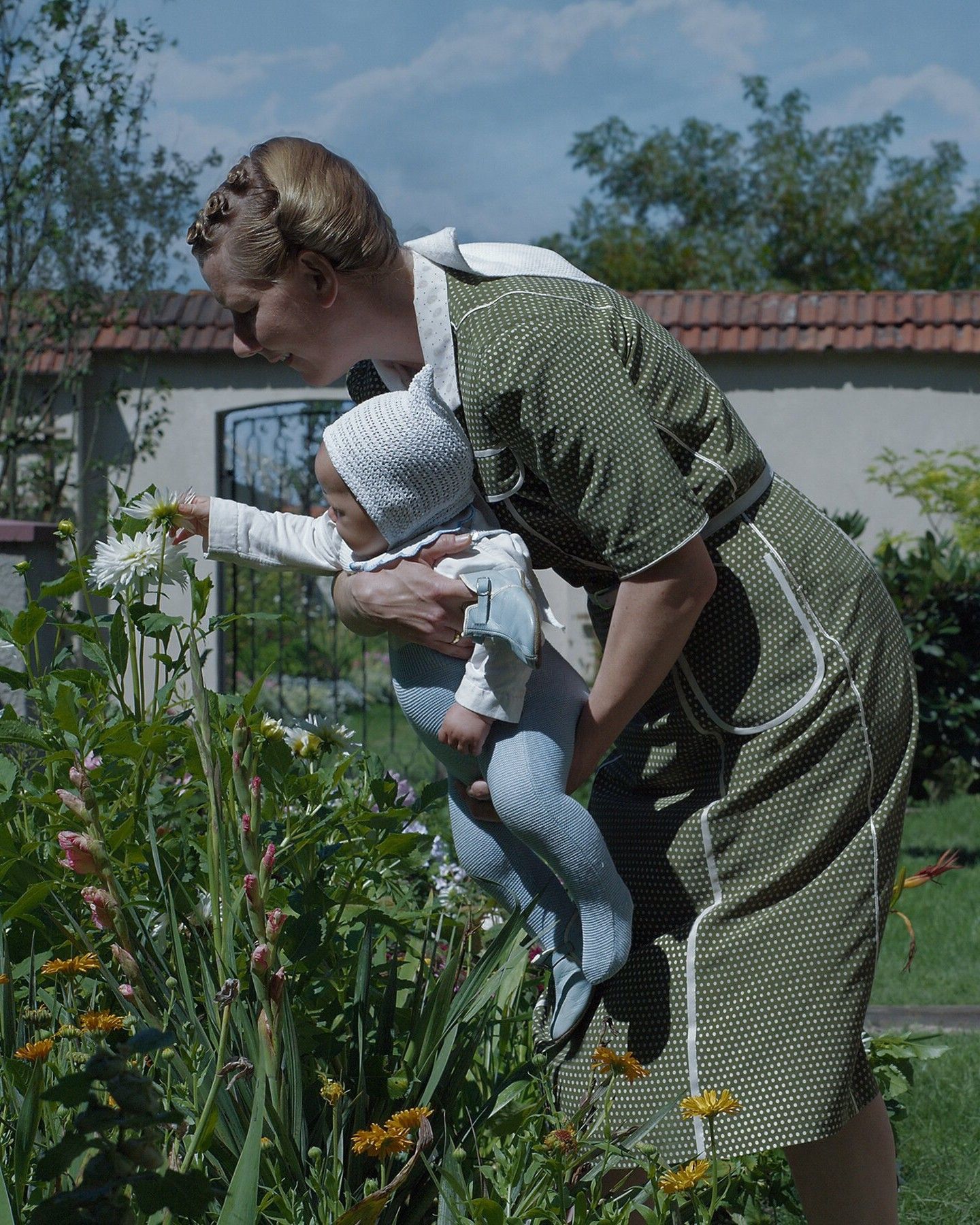
The audio horror of "The Zone of Interest". Even though on the screen you will only see flowers and children playing.
The main difference between sight and hearing is that we can close our eyes, but not our ears. Not to mention how our field of vision is always limited to what is in front of us, while our auditory field is open all around us, 360 degrees. Sounds create the space, after all. And this is the main problem for the protagonists of The Zone of Interest, the new film by Jonathan Glazer that is quickly climbing the Italian box office charts. It tells the story of the life of Rudolf Höss' family, commander of the Auschwitz concentration camp, in an idyllic country villa that has the only inconvenience of being adjacent to the camp's wall. The film doesn't have a real plot, but simply shows us the routine of the Höss family, which includes five children and a mother-in-law, as well as the "servants" who are actually prisoners of the camp. This routine includes family dinners, garden parties, swimming in the river, and horseback riding in the fields - a perfectly normal life, surrounded by greenery and tranquility. Well, except for the gut-wrenching perception of the massacre happening beyond the wall, conveyed through a constant, draining soundtrack that seems to come straight from hell. It's all left unsaid: in the convivial scenes, one can't help but notice the Auschwitz watchtower looming in the background; when the servant cleans Höss' boots from the mud, the water turns red with blood; even in the gardening scenes, it's impossible to ignore the barbed wire in the upper corner of the frame. Just like the thoughts of the protagonists, the perspective of the shots is intended to only show the beauty: the flowers, the blue sky, the countryside.
@a24 The garden. #TheZoneofInterest original sound - A24
But what the characters can't control is what they hear: the terrible screams, the gunshots, the dogs tearing apart the prisoners alive, the shouted orders of the kapo, the whips, the sound of trains and the engines of the gas chambers. A sound that's like a grindstone, that carpets every scene, interrupted only by some interludes that break its realism with deep and jarring chords created by Mica Levi, which reach the ears like explosions of anguish, psychological realizations of the horror that is never shown. When the infernal screams and cries are not heard in the distance, another sound, sometimes indistinct machinery being operated, other times a kind of atonal residue (there are no words to describe it) that seems to describe the vast empty space through which these sounds propagate. As mentioned by both lead actor Christian Friedel and several online commentators, the film seems to be a spiritual continuation of Michael Haneke's The White Ribbon, set exactly thirty years earlier and in which Friedel himself stars. "There's a connection between The White Ribbon and this film, because the children of The White Ribbon could be the future culprits of The Zone of Interest." Friedel said to Screen Rant - but Glazer's film employs artistic devices and symbolism that go beyond Haneke's rough and clinical style, such as the scenes shot in infrared or the enigmatic final scene with its flash forward to the present-day Auschwitz museum.
This part was pure terror.
— Ismail (@Ismail_Kuro) February 23, 2024
"The Zone Of Interest" (2023) pic.twitter.com/Fa8so5gmU5
This scene indicates that the film doesn't only want to immerse itself in a historical reality, but also assume the observing conscience of a modern viewer - which doesn't mean that the characters in the film are unaware of what surrounds them. Everyone feels and sees the signs with different reactions: in the final scene, Höss is overcome with terrible bouts of vomiting due to his exposure to the ashes in the air, as well as the realization of having lost his humanity, when in the middle of a gala party, all he can think about are the gas chambers. His wife lives in total denial, even wearing the fur coats and makeup of the deported Jewish women and threatening the maids with death while drinking tea; but it's the mother-in-law who shows the only normal reaction to the presence of the camp, running away into the night, horrified by the screams and the ash falling from the sky onto the garden, and leaving a note of explanation that her daughter, after reading it the next morning, will burn in the stove while proceeding with her breakfast. This reticence, this refusal to acknowledge what's beyond the wall, isn't the main issue: what is, though, is the stubbornness of the characters and the audience (and here we are included) to continue living a reassuring and normal existence, even at the cost of completely ignoring the evil around us. As in a thousand other cases in our lives, we passively witness violence, without intervening: even we are afraid that our normal life will be interrupted, even we, perhaps, are just like them.











































